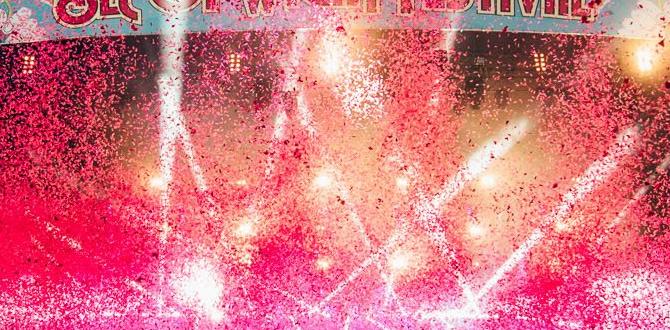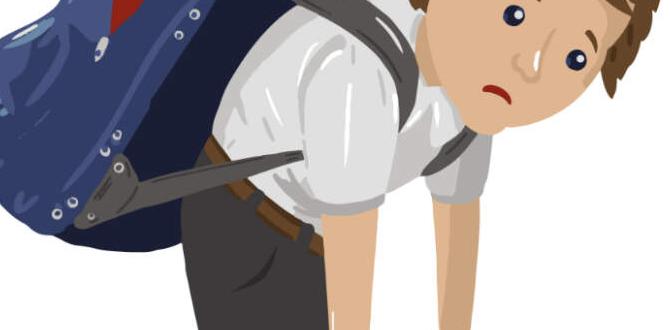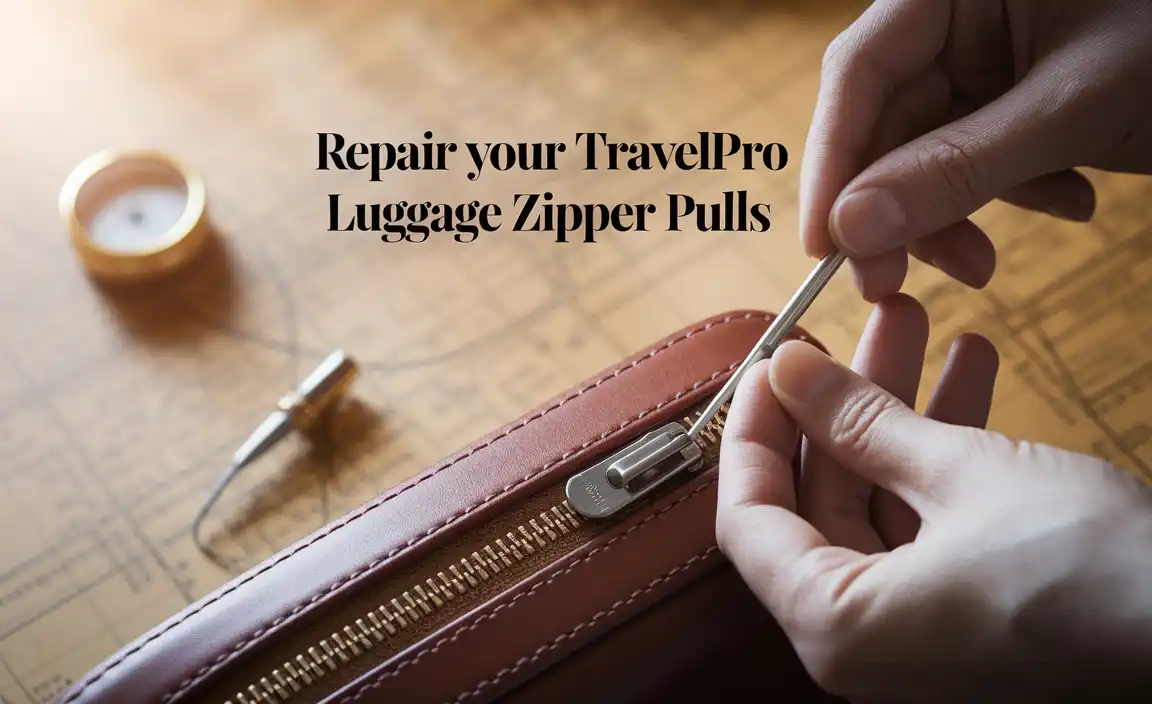Planning your first trip to Asunción? This guide provides essential tips for a comfortable and stress-free experience, covering everything from packing and local etiquette to navigating the city and making the most of your visit. Get ready for an adventure filled with rich culture and warm hospitality.
Welcome to Asunción, Paraguay’s vibrant capital! Stepping into a new city can feel a bit daunting, especially when you’re not sure what to expect. Asunción, with its fascinating history, lively culture, and welcoming people, offers a unique travel experience.
But like any destination, a little preparation goes a long way to ensure your first visit is memorable for all the right reasons. You might be wondering about the best time to visit, what to pack, how to get around, or even what delicious food to try. Don’t worry, we’ve got you covered! This guide is designed to make your Asunción adventure as smooth and enjoyable as possible, packed with practical advice to boost your confidence.
Why Asunción? A Glimpse into Paraguay’s Heart
Asunción, often called “The Mother of Cities,” is one of South America’s oldest continuously inhabited cities. It’s a place where colonial charm meets modern life, offering a rich tapestry of history, art, and authentic culture. Unlike some of the more heavily touristed South American capitals, Asunción retains a very genuine, local feel, making it an exciting discovery for first-time visitors. Its pace is generally more laid-back, allowing you to truly immerse yourself in the Paraguayan way of life. From its impressive historical landmarks to its bustling markets and the beautiful waterfront, Asunción promises a journey that’s both enriching and authentic.
When to Visit Asunción: Seasons and Sensations
Choosing the right time to visit can significantly impact your Asunción experience. The city experiences a subtropical climate, meaning it has distinct warm and humid seasons. Understanding these will help you pack accordingly and plan activities.
Summer (December to February): These months are hot and humid, with average temperatures often exceeding 30°C (86°F). Rainfall is also common, usually in the form of short, intense thunderstorms, particularly in the afternoon. If you enjoy vibrant energy and don’t mind the heat, this can be a lively time. Festivals and outdoor events are abundant.
Autumn (March to May): This is often considered one of the best times to visit. The weather starts to cool down, becoming more pleasant with average temperatures in the mid-20s°C (around 70s°F). The humidity decreases, making sightseeing and exploring much more comfortable. The fall foliage can also add a beautiful touch to the city’s landscapes.
Winter (June to August): Asunción’s winter is mild compared to many other parts of the world. Temperatures typically range from 10-20°C (50-68°F). It’s drier than summer, and while evenings can be cool, daytime is usually pleasant for exploring. This is a great time to avoid the crowds and enjoy comfortable temperatures.
Spring (September to November): Similar to autumn, spring offers a delightful climate. Temperatures gradually rise, and the city bursts into bloom. It’s a wonderful time for walking tours and enjoying outdoor cafes before the intense summer heat returns.
It’s worth noting that Asunción experiences many public holidays, which can affect opening hours of attractions and availability of services. It’s a good idea to check a local calendar if you’re traveling around these times.
Getting There and Around: Navigating Asunción
Arriving in Asunción is straightforward, and once you’re there, a few options can get you to your destination comfortably and affordably.
1. Arrival at Silvio Pettirossi International Airport (ASU):
Location: ASU is located in Luque, about 15-20 kilometers (9-12 miles) northeast of Asunción’s city center.
Transport to the City:
Taxis: Official airport taxis are readily available and are the most convenient option. Ensure you use the official taxi stands located outside the arrivals hall. The ride to the city center typically takes 30-45 minutes, depending on traffic. It’s advisable to agree on a fare beforehand or ensure the meter is used.
Ride-Sharing Services: Services like Uber operate in Asunción and can be a cost-effective alternative to traditional taxis. You can request a ride once you have exited the secured area of the airport.
Airport Transfer Services: Many hotels offer shuttle services or can arrange airport transfers for their guests. This can be a seamless option if you prefer to have everything pre-booked.
2. Getting Around Asunción:
Taxis and Ride-Sharing: Taxis are abundant throughout the city and are relatively inexpensive. Like at the airport, it’s good practice to confirm the fare or ensure the meter is running. Ride-sharing apps are also popular and offer transparent pricing. These are excellent for getting around, especially in the evenings or when you need a quick trip.
Public Buses: Asunción has an extensive bus system. While it’s the most economical way to travel, it can be confusing for first-timers due to the complexity of routes and frequent changes. If you choose to use buses, it’s best to ask locals for directions or use a reliable navigation app that provides public transport information.
Walking: The city center and areas like the Costanera are very walkable, especially during cooler parts of the day. Exploring on foot is a great way to discover hidden gems, local shops, and vibrant street life.
Rental Cars: Renting a car is an option if you plan to explore areas outside Asunción. However, driving in the city can be challenging due to traffic patterns and road conditions. If you stick to the city, taxis and ride-sharing are often more practical.
Essential Packing for Asunción: Comfort and Preparedness
Packing smart is key to a comfortable trip. Asunción’s climate and activities call for light, breathable clothing, but it’s also wise to pack for varying conditions and potential needs.
Clothing:
Lightweight, breathable fabrics: Cotton, linen, and moisture-wicking synthetics are ideal for the heat and humidity.
T-shirts and tops: Plenty of short-sleeved options.
Shorts and skirts: Comfortable for warm weather.
Long pants or capris: Good for evenings, visiting religious sites, or if you prefer more coverage.
A light jacket or sweater: Essential for cooler evenings, especially during winter months or in air-conditioned environments.
Rain jacket or umbrella: Crucial for unexpected summer showers.
Swimsuit: If your accommodation has a pool or you plan any water activities.
Footwear:
Comfortable walking shoes: You’ll be doing a lot of exploring, so prioritize comfort.
Sandals or flip-flops: For relaxed days or around your accommodation.
Dressier shoes: If you plan on visiting nicer restaurants or attending events.
Accessories:
Sunscreen: High SPF is a must to protect your skin.
Hat with a brim: For sun protection.
Sunglasses: Essential for bright days.
Insect repellent: Especially important during warmer months and evenings to ward off mosquitoes.
Reusable water bottle: Stay hydrated and reduce plastic waste.
Small backpack or day bag: For carrying essentials while out and about.
Portable power bank: Handy for keeping your devices charged on the go.
Health & Personal Care Related Items:
Basic First-Aid Kit: Include bandages, antiseptic wipes, pain relievers, and any personal medications.
Hand sanitizer: For keeping hands clean when soap and water aren’t readily available.
Travel-sized toiletries: Pack what you need for your stay.
Consider personal care needs for comfort: For longer journeys or unexpected situations, having discreet and reliable personal care items can significantly boost travel confidence. Items like adult diapers or protective underwear can offer peace of mind, especially for extended travel days or if you have specific health requirements. Many brands offer discreet, absorbent, and comfortable options suitable for all-day wear, ensuring you can focus on enjoying your trip without worry. Travel-sized packs or discreet pouch options can be ideal for carrying in your day bag.
Navigating Local Culture and Etiquette
Engaging with local culture respectfully will enrich your experience. Paraguayans are known for their warmth and hospitality.
Greetings: A handshake is common during introductions. Men usually shake hands, and a woman might offer her hand to a man or another woman. Close friends and family often greet with hugs and kisses on the cheek.
Punctuality: While Asunción can be relaxed, for business meetings or formal appointments, punctuality is appreciated. For social gatherings, arriving a little late (15-30 minutes) is often acceptable.
Language: The official languages are Spanish and Guarani. While many people in Asunción speak Spanish, learning a few basic Guarani phrases will be highly appreciated. Even a simple “Mba’éichapa?” (How are you?) or “Aguyje” (Thank you) can go a long way. English is not widely spoken outside of tourist-focused establishments.
Dining: When invited to someone’s home, it’s polite to bring a small gift, such as chocolates, wine, or pastries. It’s customary to wait until the host indicates it’s okay to start eating. Complimenting the food is always a nice gesture.
Dress Code: While Asunción is generally casual, it’s advisable to dress modestly when visiting churches or more traditional areas. For men, this means covering your shoulders and knees. Women should consider similar modesty.
Must-See Attractions and Activities
Asunción offers a variety of attractions that showcase its history, culture, and natural beauty.
Palacio de los López: The stunning presidential palace is a landmark of the city. While the interior is not always open to the public, its impressive architecture from the outside is a must-see, especially when lit up at night.
Panteón Nacional de los Héroes (National Pantheon of Heroes): This is a significant historical monument honoring Paraguay’s heroes. It’s a solemn and grand place to visit.
Centro Histórico (Historic Center): Wander through the streets around Plaza de Armas to see colonial-era buildings, the Metropolitan Cathedral, and the old Congress building.
Costanera de Asunción: The waterfront promenade is a popular spot for locals to stroll, exercise, and enjoy views of the Paraguay River. It’s especially lively in the evenings and on weekends.
Museo Nacional de Bellas Artes (National Museum of Fine Arts): Discover Paraguayan art in this beautiful building, which was formerly the presidential residence.
Mercado Central (Central Market): Experience the vibrant atmosphere of a local market. Here you can find fresh produce, local crafts, souvenirs, and try traditional food. It’s a great place to get a feel for daily life.
Manzana de la Rivera: This cultural complex houses several museums, art galleries, and exhibition spaces, offering a deep dive into Paraguayan history and culture.
Yacht y Golf Club Paraguayo: For a relaxing afternoon, consider a visit to this club (often accessible to visitors with temporary passes) for its beautiful grounds and river views.
Culinary Delights: Tasting Asunción
Paraguayan cuisine is hearty and flavorful, with influences from indigenous traditions and neighboring countries. Don’t leave Asunción without trying these local specialties.
Table: Must-Try Paraguayan Foods
| Dish Name | Description | Key Ingredients |
| :—————- | :——————————————————————————————————————————————————————————————————— | :————————————————- |
| Sopa Paraguaya | Despite its name, this is not a soup! It’s a savory cornbread baked with onions, cheese, and eggs, resulting in a dense, delicious cake-like texture. A unique culinary experience. | Cornmeal, onions, cheese, eggs, milk, oil. |
| Chipa | A staple snack, chipa is a small, cheesy bread typically made from corn flour and cassava starch. It’s often shaped into rings or balls and can be found everywhere, from bakeries to street vendors. | Cassava starch, corn flour, cheese, milk, eggs. |
| Asado | The quintessential Paraguayan barbecue. High-quality cuts of beef are slow-grilled to perfection, often seasoned simply with salt. It’s a social event and a culinary highlight. | Beef cuts (ribs, flank steak), salt. |
| Tereré | Paraguay’s national drink. It’s a cold infusion of yerba mate with water, ice, and often herbs or citrus. It’s shared socially and is incredibly refreshing in the heat. | Yerba mate, water, ice, herbs/citrus (optional). |
| Milanesa | Thinly breaded and fried meat cutlets, usually beef or chicken. It’s a common and satisfying dish, often served with rice or fries. | Beef or chicken fillets, breadcrumbs, eggs, oil. |
| Bollos (Pajagua) | Small fried patties made from ground meat (often beef), cornmeal, and spices. A flavorful and hearty snack or appetizer. | Ground beef, cornmeal, onions, spices, egg. |
Exploring local eateries, from bustling markets to traditional “parrillas” (grill houses), is the best way to savor these flavors.
Practical Tips for First-Timers
To ensure your trip runs smoothly, here are some practical tips to keep in mind:
Currency: The local currency is the Paraguayan Guaraní (PYG). While some larger establishments might accept US dollars, it’s best to have Guaraníes for smaller purchases, markets, and taxis. ATMs are widely available, and credit cards are accepted in most hotels, restaurants, and larger stores.
Safety: Asunción is generally safe for tourists, but like any large city, it’s wise to take precautions. Be aware of your surroundings, especially in crowded areas and at night. Avoid displaying expensive jewelry or large amounts of cash. Keep your valuables secure.
Water: Bottled water is recommended for drinking. Tap water is generally not considered safe for consumption by visitors.
Tipping: Tipping is not as widespread or as high as in some Western countries. In restaurants, a 10% service charge might be included in the bill. If not, a tip of around 10% for good service is appreciated. For taxi drivers, rounding up the fare is common.
Electricity: The voltage in Paraguay is 220V, and the frequency is 50Hz. The plugs are typically Type C and Type I (associated with the three-pin rectangular Australian-style plug). You may need a voltage converter and an adapter. You can check international plug types at the International Electrotechnical Commission (IEC) website.
* Connectivity: Wi-Fi is available in most hotels, cafes, and restaurants. For extended stays or if you need constant data access, consider purchasing a local SIM card.
Frequently Asked Questions About Asunción
Q1: Is Asunción safe for solo female travelers?
A1: Asunción is generally safe, but solo female travelers should exercise the same precautions as in any major city. Stick to well-lit areas, be aware of your surroundings, avoid walking alone late at night in unfamiliar neighborhoods, and trust your instincts. Using reputable taxis or ride-sharing services is recommended for nighttime travel.
Q2: Do I need to speak Spanish or Guarani to visit Asunción?
A2: While many locals speak Guarani, Spanish is the primary language for business and tourism. Learning a few basic Spanish phrases will be very helpful, and even more so if you can sprinkle in common Guarani greetings. English is not widely spoken outside major hotels and a few tourist-oriented businesses.
Q3: What is the best way to exchange money in Asunción?
A3: You can exchange money at banks or official exchange houses (casas de cambio). ATMs are also widely available and often provide the best exchange rates, especially if your bank has partnerships with local networks. It’s a good idea to inform your bank about your travel plans beforehand.
Q4: What should I pack for the weather in Asunción?
A4: Asunción has a subtropical climate. Pack lightweight, breathable clothing like cotton or linen for the heat and humidity, especially if visiting in summer (December-February). Include a light rain jacket or umbrella for potential afternoon showers, and a light sweater or jacket for cooler evenings or air-conditioned spaces. Comfortable walking shoes are a must.
Q5: Is it safe to drink tap water in Asunción?
A5: It is generally recommended that visitors drink bottled water. While the municipal water supply is treated, traveler’s stomachs can be sensitive to changes in water. Always opt for sealed bottled water for drinking, and be cautious with ice in drinks if you’re unsure of its source.
Q6: What kind of power adapter do I need for Asunción?
A6: Paraguay uses 220V voltage at 50Hz. The most common plug types are Type C (Europlug) and Type I. It’s advisable to check your electronic devices for their voltage compatibility and carry a universal adapter set if you are unsure.
Q7: Are there any personal comfort items I should consider for a trip to Asunción, especially for long travel days?
A7: For extended travel days or to ensure personal comfort and confidence, consider packing discreet personal care items. Items like adult diapers or protective underwear can provide a sense of security and






